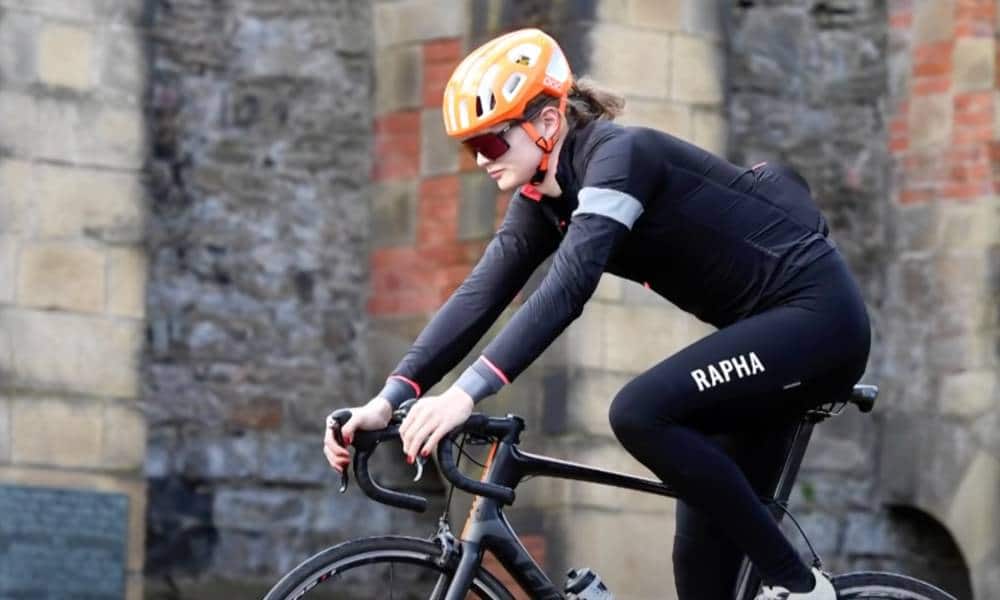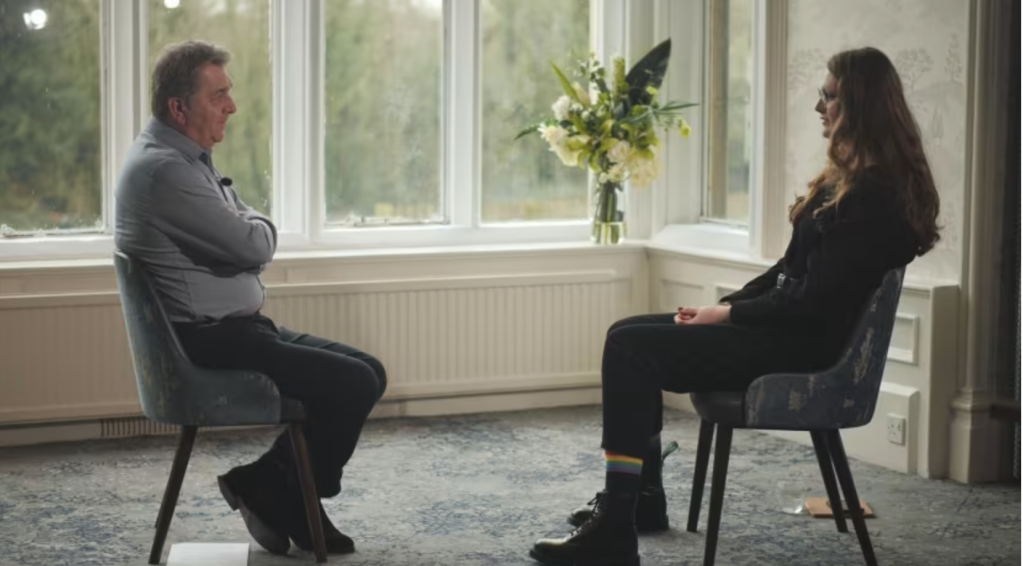Everything you need to know about trans cyclist Emily Bridges, including her new ITV interview
Cyclist Emily Bridges has made waves since coming out as transgender in 2020, but sadly, she has also faced a great deal of toxic abuse due to her identity as a result.
Emily Bridges began cycling at the ago of nine when she moved to Wales, and competed in her first race when she was 11.
When she was 16 years old, she won a silver medal at the 2017 junior nationals, and moved on to the Great Britain Junior Academy, the home of Olympic hopefuls. In the first year she was hit twice by cars and once by a motorbike, yet still managed to win two silver medals at the national track championships.
Bridges penned an op-ed for Sky Sports on National Coming Out Day 2020, just a year after she won her first national title and placed fourth at the World Junior Championships.
At the time, she was applauded for coming out. Julie Harrington, British Cycling CEO, applauded the young athlete, saying: “On behalf of British Cycling, I want to extend our full support to Emily.
“Coming out is a significant moment in her life which we celebrate with her, and we wish her all the best for the future.”
Anti-trans backlash and cycling ban

Just two years later, Bridges became the centre-point of a toxic national debate in 2022 after she was barred from a major British Cycling championship for being transgender.
Emily Bridges was blocked from participating in the women’s British National Omnium Championships after the world governing body of cycling ruled her ineligible. British Cycling’s policy originally stipulated that trans cyclists must meet a certain testosterone level for at least 12 months before they can compete in the female race category.
Bridges, 21, met this requirement. She was set to race at the women’s British National Omnium Championships on 2 April 2022, where she would have competed against some of the top names in the sport.
However, British Cycling released a statement on 30 March announcing that the Union Cycliste Internationale (UCI) – the sport’s world governing body – has ruled that Bridges cannot compete “under their current guidelines”. The announcement came after backlash over Bridges’ inclusion.
In 2023, British Cycling followed this up by banning trans women from competing in its female category and announced the introduction of an ‘open’ category instead. Emily Bridges took to Instagram to describe the decision as a “violent act” and blasted British Cycling as a “failed organisation”.
It’s believed the decision followed a nine-month consultation and rumours some of the UK’s leading female riders were threatening a boycott over Bridges’ eligibility for female races.
Since then, she has become a figurehead in the battle over trans women’s inclusion in female sports.
ITV interview

On 20 February 2024, Bridges gave her first broadcast interview since British Cycling banned transgender women from elite women’s events: speaking exclusively to ITV News Sports Editor Steve Scott, she told him that she will take her fight to overturn the ban to court.
Speaking about cycling she said, “It’s not something I allow myself to think about too much because that part of my life is gone now, and it’s not something I really want to do anymore,” she told Scott.
“If we were allowed to compete, if I was allowed to compete, it would be a different conversation,” she added, “but I can’t compete…I can’t do something I used to love.”
Speaking about the fact that British Cycling had given her the option to compete in the ‘open’ category alongside other transgender women, transgender men, and athletes born biologically male, Bridges explained that she would not feel safe competing alongside men and does not like transgender women having to ‘out’ themselves to compete in the category.
She told Scott that she is now prepared to go to the European Court of Human Rights to challenge the change in rules, arguing British Cycling have violated her human rights.
The full interview will be broadcast at 7pm on 20 February 2024, on ITV.
Appearance on British Vogue’s list of influential women
In 2023, Trans cyclist Emily Bridges was included in a list of influential women by British Vogue magazine.
Activists and allies celebrated the star’s inclusion in Vogue 25, a list of women who are “defining – and redefining – Britain in 2023,” compiled by the fashion bible.
“This is sensational. The ultimate acknowledgement, acceptance and inclusivity. Her brave fight for fairness is far from over, and, armed with genuine science, this trans voice will finally be heard,” one fan wrote on social media.
“This is such a great piece,” another said, about Vogue’s coverage of Bridges and her sporting story. “I wish cisgender people would acknowledge this, not [only] trans people fighting for our ability to just exist in this sporting structure.”
Writing on Instagram about being included in the list, Bridges said the magazine approached her as she struggled to deal with British Cycling banning her – and other trans women – from competing in the women’s category.
“It took real introspection and some incredibly dark times to realise and fully accept this, and when I did, it broke me,” she wrote. “I knew that to move forward, with my life, and for me to grow as a person, I had to separate my self-worth from cycling.”
She is in a “more stable place now”, and was “truly grateful” to be on Vogue’s list, she added.
“For the first time in a long time, life has meaning and purpose. I wouldn’t have gotten through this without those around me, and I’m so grateful and lucky to have you all in my life. I love you all so incredibly much, you mean everything to me.”
In a separate opinion piece as part of the Vogue 25 announcement, Bridges – who came out as transgender almost three years ago – laid the blame for the abuse she often receives at the feet of those who have never previously cared about the sport.
“Sport is inherently unfair,” she wrote. “That’s why there are winners and losers. Competitors are put into categories so everyone has a reasonable shot at winning, but the reality is that the playing field is never completely level in the first place.
“All athletes have different levels of endurance and physical ability, that’s why we train relentlessly.“
Transphobes have seen the segregation of trans women from female competitions as a way to “jump in on the culture war” and “further anti-trans rhetoric”, she claimed.
“Sport is built around such explicit binaries. When those are blurred, people freak out. We, as trans people, challenge something that most people see as so unchangeable, so innate. Once those barriers start to break down, you see how socially constructed much of our world view is.”
As if to prove her point, social media posts about the piece have since been bombarded by “gender-critical” individuals and anti-trans activists, who have relished in misgendering Bridges and insulting her.
In response, supportive members of the community have said Bridges “deserves better” and asked activists to “send likes, positive comments… Don’t engage with [gender criticals], just block them.”

